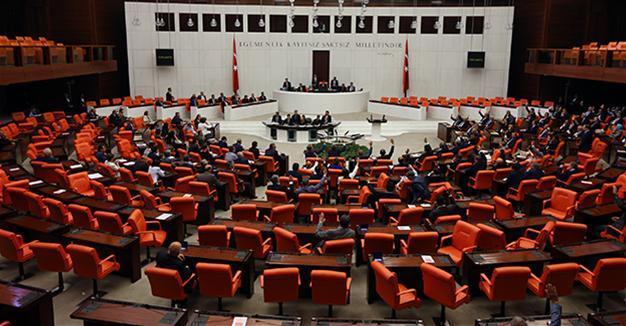Turkish parliament passes bylaw changes
ANKARA
 Turkey’s parliament has voted for the 18-article internal regulation amendment which reduces the duration of speeches and discussion opportunities for opposition parties amid strong criticisms.
Turkey’s parliament has voted for the 18-article internal regulation amendment which reduces the duration of speeches and discussion opportunities for opposition parties amid strong criticisms.The amendment, prepared by the joint efforts of the ruling Justice and Development Party (AKP) and the Nationalist Movement Party (MHP), was approved at the plenary session on late July 27.
The amendment includes changes in the working hours of the general assembly, methodic changes in the procedure concerning legislating draft laws, voting, making an oath and durations for giving speeches.
“Lawmakers who refrain from taking an oath will not benefit from the privileges that come from being a lawmaker,” according to the change.
“During the general assembly discussions, a lawmaker who would defame or insult the constitutional order which is framed by the first four articles of the constitution, or the common history of the Turkish nation, a lawmaker who uses a terminology against the indivisible integrity of the Republic of Turkey and against its administrative structure stated in the constitution will be temporarily dismissed from the general assembly,” the amendment wrote. Entering the general assembly with a gun is also stated among the grounds for dismissal.
The amendment also included actions like “carrying placards, banners or similar material which would disturb the working order of the general assembly,” within the grounds of “reprimand” for lawmakers.
In addition, the 10-minute duration limit of the lawmakers about the discussions on procedural manners is reduced to three, while the lawmaker may only speak five minutes about his or her party group’s proposal.
The lawmakers may not discuss offers of the Advisory Committee and may not request to take a roll call during plenary sessions on the articles of draft laws and proposals and motions.
Opposition’s criticism
In one week discussions in the parliament following the heated debates at the commission, the opposing Republican People’s Party (CHP) and People’s Democracy Party (HDP) members argued that the amendment critically limits the opposition’s activity in the parliament.
Opposition members argue that the reduction of speech time and the limitation of discussions on the offers of the Advisory Committee and procedural talks amount to “silencing the opposition,” as stated by the CHP’s Deputy Group Leader Özgür Özel on July 27.
HDP members, on the other hand, argue that the definition of the “terminology against the indivisible integrity of the Republic of Turkey and its administrative structure,” is left vague and this amendment would result in the “reprimand” or arbitrary implementation of the dismissal of the lawmakers from plenary sessions.
















